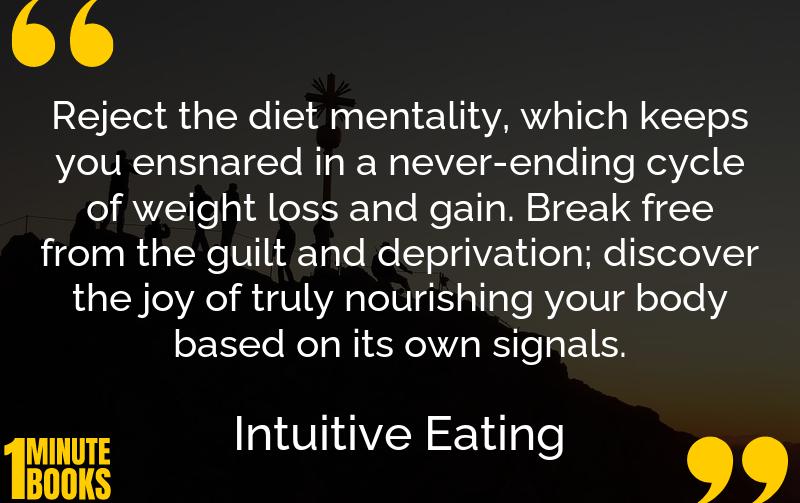
Intuitive Eating by Evelyn Tribole and Elyse Resch proposes rejecting diets and instead attuning to your body’s natural hunger signals to develop a healthier relationship with food.
Main Lessons
- Dieting can damage our relationship with food, leading to overeating and weight gain.
- The dieting industry is lucrative yet often counterproductive, promoting measures that may not work long-term.
- Deprivation diets ignite cravings that can result in binge eating.
- Societal norms placed on types of food create unnecessary guilt and anxiety.
- Intuitive eating suggests that listening to your body’s hunger signals is effective and natural.
- Toddlers eat intuitively, demonstrating the body’s innate ability to regulate intake.
- Mindful eating involves pausing to evaluate hunger and satisfaction levels regularly.
- Granting oneself permission to enjoy all foods can diminish cravings and overeating.
- Respecting fullness is crucial and involves recognizing and acknowledging when you’re satiated.
- Overeating often comes from inattention rather than sheer hunger.
- Food moralization distorts our eating behaviors and perceptions of self-control.
- Reframing irrational food beliefs supports a healthier mindset and eating behaviors.
- Making peace with food involves removing its emotional and moral weight.
- Intuitive eating is about rediscovering and respecting your body’s needs without guilt or restriction.
- Self-reflection helps maintain this approach, allowing for adjustments and true satisfaction.








